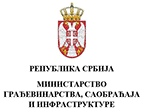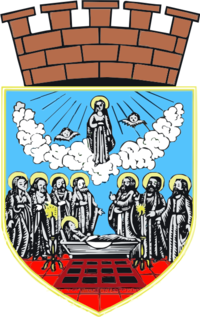CEDEF is an independent expert organisation dedicated to, among other things, research and publishing activities in the field of environment, energy efficiency and renewable energy sources. Some surveys are conducted for organisations that require specific information on legislations and markets. The other studies are available to the public. Two examples of such publications are: a Guide for financing energy efficiency and renewable energy sources and a Glossary of sustainable construction.
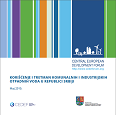
Usage and treatment of municipal and industrial wastewater in Republic of Serbia
Central European Development Forum, CEDEF, in cooperation with the Provincial Secretariat for Urban Planning, Construction and Environmental Protection of the Autonomous Province of Vojvodina, has created a publication "Usage and treatment of municipal and industrial wastewater in Republic of Serbia ". The publication was written as reaction to the dire current environmental situation in Serbia, especially in the field of water management, and it was presented on the 6th Annual International CEDEF Energy Forum, which was held on 13th May 2015 in Novi Sad. As an integral part of the 6th Forum, the publication contains the outline of the current situation relating to the management of municipal and industrial wastewater in Serbia indicating the legislation in the Republic of Serbia, as well as the level of harmonization with EU regulations. The publication also presents examples of good practice in this field and provides suggestions for improving the management of wastewater.
CEDEF publication "Usage and treatment of municipal and industrial wastewater in Republic of Serbia" can be downloaded here.

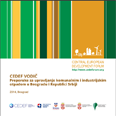
CEDEF Guide Recommendations for the management of communal and industrial waste in Belgrade and Republic of Serbia
Central European Development Forum, CEDEF, and the Serbian Chamber of Commerce, under the institutional auspices of the Secretariat for Environmental Protection of the City of Belgrade, the Ministry of Mining and Energy of the Republic of Serbia, Ministry of Agriculture and Environmental Protection of the Republic of Serbia and the Agency for Environmental Protection of the Republic of Serbia, have organised six public debates on the management of communal and industrial waste in the Republic of Serbia, from 17th December 2013 until 5th June 2014. Due to the great interest of the participants at the debates, CEDEF organised a round table discussion on the current state of landfills in Serbia. Since the current situation in the majority of municipalities and cities in the country is critical in terms of waste management, CEDEF gathered representatives of the state, manufacturers of advanced technologies, waste management operators, the largest producers of waste, public utility companies, local governments, who together reviewed and initiated the most important matters within the topic of municipal and industrial waste. In this way, CEDEF was in an ideal position to carry out all necessary analysis with all stakeholders and thus, examine the practical problems and offer recommendations. The aim was to reach the best solutions and proposals for the improvement of the management of communal and industrial waste in the state, and thereby ensure the achievement of higher environmental standards, quality of the environment, but also the market, competitive and economically profitable business in Serbia and the region. In addition to the discussions and conclusions in the public debates, CEDEF, supported by the Secretariat for Environmental Protection of Belgrade prepared the guide: "Recommendations for the management of communal and industrial waste in Belgrade and the Republic of Serbia", which shall serve all policy makers in the field of waste, as well as its implementers.
CEDEF Guide Recommendations for the management of communal and industrial waste in Belgrade and the Republic of Serbia can be downloaded here.

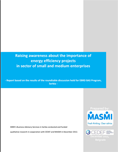
Strengthening the impact of energy efficiency projects in small and medium-sized enterprises.
EBRD Business Advisory Services Serbia in cooperation with CEDEF and research company MASMI, conducted qualitative research on the topic Strengthening the impact of energy efficiency projects in small and medium-sized enterprises in December 2012.
The publication ‘Strengthening the impact of energy efficiency projects in small and medium-sized enterprises’ can be downloaded here.

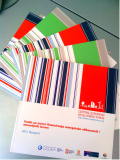
Guide for financing energy efficiency and renewable energy sources
Nowadays, the need and interest to improve energy efficiency and to make greater use of renewable energy sources has significantly increased and for the first time a guide of this kind has appeared in Serbia. The guide provides stakeholders with current information on sources of financing and loans in the Republic of Serbia, which is now available in one place. Consequently, this guide contributes to a faster implementation of projects in the field of EE and RES.
CEDEF conducted research and gathered useful data, finding that it is high time for the publication of such a guide. Serbia is consistently encouraging energy efficiency measures and the use of renewable energy sources and therefore is rapidly approaching the international standards of sustainable development and the fight against climate change. We hope that the multiple practical applications described in the guide will have a positive influence on new energy projects and we invite all organisations who have new information to submit them to us.
The guide for financing energy efficiency and renewable energy sources can be found here.

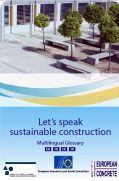
Glossary of sustainable construction
During the Sustainable Energy Week in June 2012, CEDEF President, prof. dr Ana Bovan, presented the “Glossary of sustainable construction”, translated into Serbian language by CEDEF, in the European Economic and Social Committee in Brussels. Mr. Henri Malosse, the President of EESC took part in the presentation, and Ms. Gordana Zrnic, director of Serbian Chamber of Commerce in Brussels. The Serbian translation of “Let's speak sustainable construction” was initially published on English, French, German and Spanish. The authors of the glossary are European Economic and Social Committee (EESC), the Council of Architects of Europe (ACE) and the European Concrete Platform (ECP). Serbia is the first country outside of the European Union, which has translated this publication into their own language, in order to increase the knowledge of local engineers.
Glossary of sustainable construction can be found here












